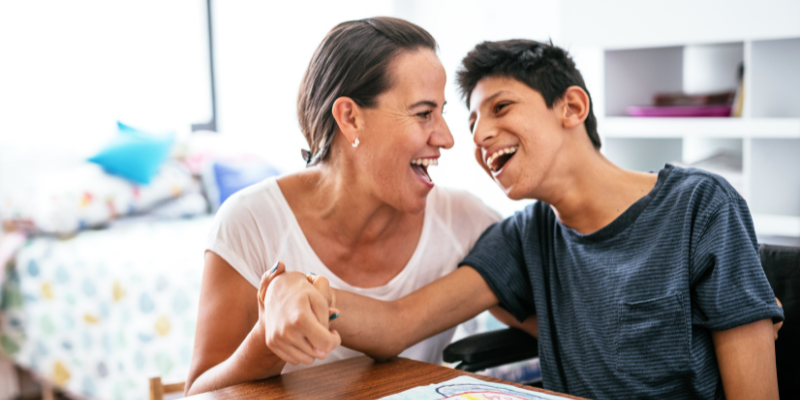
Having attention-deficit/hyperactivity disorder (ADHD), also known as attention-deficit disorder (ADD), can have a major impact on every aspect of your life. It can negatively affect your performance at work or school, interfere with your relationships, and make you feel like a failure in so many ways.
To combat ADD/ADHD symptoms, people often look to medication. And in the traditional medical and psychiatric communities, stimulant medications are considered first-line treatments for the condition.
From 2006-2016, total stimulant usage doubled, according to a study in Plos One. Since then, the numbers keep rising. Statistics from the CDC show that from 2020-2021, prescriptions for stimulants increased 10% among females from 15-44 years of age and males 25-44 years of age.
Many people with this neurodevelopmental disorder think ADD/ADHD medication is the only solution, however, there are many proven natural strategies that can help.
NATURAL TREATMENTS FOR ADHD
Many alternatives to medication have been found to reduce ADD/ADHD symptoms, which include:
- Short attention span
- Distractibility
- Procrastination
- Disorganization
- Problems with follow-through
- Poor impulse control
This is good news for the 6 million children and 4.4% of adults who are affected by this common condition. In some cases, natural solutions can complement prescription stimulants and allow for reduced dosages.
For other people, taking a natural approach is enough to keep symptoms at bay. Talk to your healthcare provider before making any changes to your medications.
Many people with ADHD think medication is the only solution, however, there are many proven natural strategies that can help. Click To TweetHere are some natural tips to start helping ADD/ADHD today:
-
Take a high-quality multivitamin and mineral supplement every day.
Research shows that people with ADD/ADHD often have nutritional deficiencies, including low levels of vitamin D, zinc, ferritin, and magnesium. Taking a supplement helps replenish levels of these important nutrients.
Studies have reported that daily multivitamins/minerals are beneficial for learning and also help prevent chronic illness.
-
Take omega-3 fatty acids.
Multiple studies, including a 2020 trial in Translational Psychiatry and a 2017 study in the Journal of Lipids, show that taking omega-3 fatty acids can be beneficial for ADD/ADHD symptoms, such as attention, impulsivity, and hyperactivity.
There are 2 active compounds in omega-3 fatty acids: EPA (eicosapentaenoic acid) and DHA (docosahexaenoic acid). Research suggests that fish oil higher in the EPA form of omega-3s may be the most helpful, but it depends on your type of ADD/ADHD.
Dose suggestions are 2,000 to 6,000 mg of high-quality fish oil a day for adults and 1,000-2,000 mg per day for children.
-
Eliminate everyday stimulants.
Avoid consuming caffeine or using nicotine products. The brain SPECT imaging work at Amen Clinics—over 225,000 functional brain scans and growing—shows that caffeine and nicotine decrease brain activity over time.
In some cases, the decline can be significant. In addition, both interfere with sleep, and people with ADD/ADHD often have difficulty sleeping.
-
Know your (or your child’s) ADD type.
The brain-imaging work at Amen Clinics has shown that there are 7 types of ADD/ADHD. Knowing your type is critical to getting the right treatment plan.
You can begin with our ADD Type Test to discover your (or your loved one’s) ADD Type and get a personalized overview on what to do about it.
-
Exercise daily for 30-45 minutes.
The neuropsychiatrists at Amen Clinics have seen a direct relationship between the level of exercise a patient gets and the severity of their symptoms. In general, more exercise is associated with less severe symptoms.
This is because physical activity boosts blood flow to the brain. This is critical because SPECT scans show a reduction in blood flow to the brain in individuals with ADD/ADHD. In particular, this drop in blood flow occurs in the prefrontal cortex during concentration, which makes it harder to stay focused.
Among ADD/ADHD patients at Amen Clinics, those who play sports that involve intense aerobic exercise, such as basketball, tend to do better in school or at work. Be sure to choose safe exercises that do not pose a risk for brain injuries. This means no tackle football, hockey, or soccer headers.
-
Limit screen time.
Keep television, video games, and device time to no more than 30 minutes a day. This may be hard for kids and teens, but it can make a dramatic difference.
In a 2019 study on preschoolers in Plos One, when screen time exceeded 2 hours a day, there were “clinically significant” increases in attentional problems and other symptoms associated with ADD/ADHD.
-
Think of food as medicine.
Most people with ADD/ADHD do best with a higher-protein, lower-simple carbohydrate diet. Protein helps you focus, helps balance blood sugar, and provides essential building blocks for brain health.
However, eating a higher-protein diet doesn’t work for everyone with the condition. People with Over-Focused ADD/ADHD tend to respond better to a more balanced diet with more complex carbohydrates.
-
In dealing with kids, employees, and spouses with ADD/ADHD – NO YELLING!
Many people with ADD/ADHD have low activity in the prefrontal cortex (PFC) due to lower levels of the neurotransmitter dopamine. To feel more alert, they often find themselves seeking conflict or excitement.
They can be masterful at making other people mad or angry at them. Don’t lose your temper with them, because it often makes things worse. If they get you to explode, their unconscious, low-energy PFC activates and unconsciously, they come to crave it. Never let your anger be their medication. They can get addicted to it.
-
Get screened for other issues.
Up to 60% of people with this neurodevelopmental disorder also have learning disabilities, and they are particularly common in those with Temporal Lobe ADD/ADHD.
In addition, consider getting screened for Irlen Syndrome. This visual processing problem affects approximately 1 in 3 individuals with ADD/ADHD. Treatment for Irlen Syndrome does not require medication. Rather, it involves the use of colored eyeglass lenses.
-
Never give up seeking help.
If you aren’t getting the results you want from your treatment plan, keep investigating. Other issues, such as head trauma, co-occurring conditions like depression, or hormonal imbalances may play a role in the severity of your symptoms.
Brain SPECT imaging and lab testing may be helpful in determining if other issues are at work. Treating these underlying problems may improve symptoms and reduce or eliminate the need for ADD/ADHD medication.
ADD/ADHD and other mental health issues can’t wait. At Amen Clinics, we’re here for you. We offer in-clinic brain scanning and appointments, as well as mental telehealth, clinical evaluations, and therapy for adults, teens, children, and couples. Find out more by speaking to a specialist today at 888-288-9834 or visit our contact page here.





No Comments »
No comments yet.
RSS feed for comments on this post.
Leave a comment